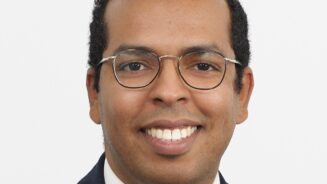“If there is a case for [active investing] anywhere in the world, it is Japan and emerging markets because that is where you have the most changes happening, where the index is the worst proxy for what may evolve in the next five-to-10 years”, Taylor told our sister publication Fund Selector Asia.
In Japan’s case, some of the best opportunities are linked to market disrupters such as demographic and technology trends, even though initially they contribute to deflation.
He explained that Japan’s ageing population of 127 million is forecast to shrink by about one-third in the next five decades, progressively tightening labour markets until “there is no one left to take the jobs available”.
“What people are doing if they don’t get pay rises is quitting their full-time jobs and getting better paid part-time jobs,” Taylor said.
“The shift to part-time work has been happening over the course of the past decade and is in addition to the ageing population theme, benefiting the staffing agencies.”
Therefore an investment opportunity is recruitment agencies and consultants, which are experiencing considerable revenue growth, he believes. The global strategy holds two Japanese recruitment agencies, Persol and Recruit.
He also values firms that “had an introspective moment” to adjust to the changes brought by technology.
Taylor highlights Nintendo. For a long time it was a poor performance stock and then management “realised that they can use their intellectual property and start to develop technology to give themselves a future”, as they did successfully with the smartphone-based reality game Pokemon Go, which launched in 2016.
Japan gets an overweight — 9.06% of the Global Focused Growth Equity Fund vs 7.86% for the benchmark — because, he said, companies are delivering earnings fundamentally.
“It surprised a lot of people that [in Q2 2017] Japan took over the US as the strongest in delivering profit, while Europe has disappointed for the past five years until this year.
“[However], when you look at the Japan market, it is cheaper than Europe by some margin, if you compare both markets to their valuation peaks in 2007. Europe is above its peak, Japan is somewhat below its peak.”
Mislabeled EMs
Taylor said the “emerging markets” label was created for circumstances that don’t exist anymore. EMs have changed significantly and they need to be looked at separately.
EM growth has traditionally been synchronized to China’s growth and its demand for commodities. But the same factors don’t apply to all EMs today in the same way they have in the past.
The firm’s global equity portfolios are only overweight Indonesia, India, the Philippines and Peru. He doesn’t see attractive opportunities in Korea, Taiwan, Brazil, South Africa or even China, which makes up about 40% of the MSCI EM Index. The firm’s portfolio only holds four Chinese companies out of 65 global names, he said. They’re tech and consumer plays: Alibaba, Baidu, Ctrip and Tencent.
In 2018, in terms of global risk, Taylor said one of the biggest concerns being wrong about the outlook for wage inflation in key markets.
“If we’re wrong and wages and prices start to accelerate, then this will lead to faster interest rate rises, which would cause a value cycle and then make us underperform.”
Another risk is that valuations become a bubble. “If we are wrong, and markets don’t go through some near term volatility, then we don’t get a pause in [market performance] strength. If [sentiment] goes back to 2000 when people didn’t worry about anything but momentum, it could turn out to be negative.”
The Global Focused Growth Equity Fund, managed by David Eiswert, versus its benchmark the MSCI AC World, over three years.





